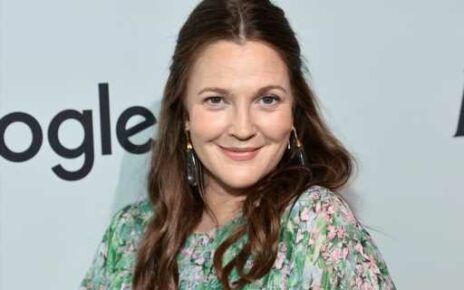At the back of Miriam Buether’s raised, cruciform walkway set stands a full-length mirror in which Vladimir Putin (Will Keen) studies himself and, crucially, teaches himself how to stand. It literally mirrors his rise to absolute power but Peter Morgan’s absorbing, acerbic new play “Patriots” focuses less on that mirror image than on the opposing one in the fiercely focused shape of Tom Hollander as the man who was Russian’s most important, billionaire businessman, Boris Berezovsky.
In film, TV and theater, turning true-life events into bio-drama is arguably the fastest route to production. And in a considerable career spanning “Frost/Nixon” and “The Queen” plus “The Crown”, Morgan has consistently hit paydirt by sticking to that genre, blurring fact and fiction along the way to dramatic effect. His latest, startlingly timely endeavour is no exception, using Berezovsky’s momentous rise and fall to illustrate the internally hallowed, externally hollowed state of Russian political culture.
In near-chronological storytelling – with occasional flashback to Berezovsky’s happy days as a child mathematician of genius who went on to study decision-making theory – Morgan’s Berezovsky is less the bruising, bear-like figure of history and more a terrifying, smiling stranger to self-doubt. In a balding wig, Hollander radiates power by understatement. Shimmering with self-satisfaction, he eats up Morgan’s witty lines.“What is a man without loyalty?” asks earnest young Putin. “Rich, usually,” drily snaps Bertezovsky.
Revelling in his authority, Hollander has a permanent gleam in his eye, a malevolent hint at the power-hungry madness simmering beneath his fascinatingly maintained calm surface. It’s an alarming performance made all the more vicious by its element of suprise. And Hollander never hints at what’s coming, providing high-voltage shock via sudden switches of mood as when he slams a piano lid down on an official accompanist whose playing he has only just praised.
The same is equally true of Keen’s shape-shifting Putin, first seen as a nondescript deputy mayor keen for Berezovsky’s endorsement and help. Berezovsky sees the potential not in Putin’s potential power but in his lack of imagination as Putin earnestly tell him he won’t be bribed. “Don’t take bribes? C’mon are you even Russian? That’s like saying you don’t jerk off.”
Keen presents a man who initially cannot disguise the small physical ticks, but who slowly and methodically quells them as he rises to power. By the time Berezovksy has installed his protege as president to follow Boris Yeltsin, Keen’s entire physicality and sense of gravity has shifted. His voice scarcely raised beyond a threateningly even tone, his jawline is stiffened, his chest swollen with power, his legs disdainfully kicking the air around him. His casting, counter-intuitive; the effect, chilling.
But this is not just When Boris Met Vladimir. Morgan’s wider focus examines the post-Communist shift from state control to the rise of the individual – so long as that individual is an obscenely wealthy oligarch up to his neck in connections to the president. And into the mix come two other vital characters.
First is the principled man he plucks from the anti-organised crime unit, Alexander Litvinenko (Jamael Westman, until recently, London’s lead in “Hamilton.”). Initially upstanding and loyal to the state, he has his eyes opened and joins Berezovsky and stays alongside him through to their exile in England where, notoriously, he was killed by poison at the hands of the Russian state.
And then there’s Roman Abramovic. The only exiled Russian oligarch to be a British household name thanks to his ownership of Chelsea football club, he has since been sanctioned by the U.K. government. In Luke Thallon’s powerfully attractive, easeful performance, he is the very definition of smooth.
In a similar vein to his excellent production of James Graham’s Rupert Murdoch play “Ink”, director Rupert Goold reins in his customary showmanship to deliver the play’s strengths. His elegantly crisp production is powered and punctuated in no small measure by Adam Cork’s sting-laden sound design and, particularly, Jack Knowles’ caustic lighting which powerfully etches and shrouds both characters and scenes.
With so wide a canvas, scenes are often close to pointed snapshots and several characters get depressingly short stage time. There’s no denying that the play takes fewer imaginative leaps and liberties than Lucy Prebble’s more unexpected “A Very Expensive Poison” which took the Litvinenko poisoning and really ran with it. But despite Morgan’s deft reliance upon disguised exposition, the superbly suggestive lead performances make the play feel engrossingly three-dimensional.
The entire run sold out prior to opening. A well-deserved transfer is more than likely.
Read More About:
Source: Read Full Article

